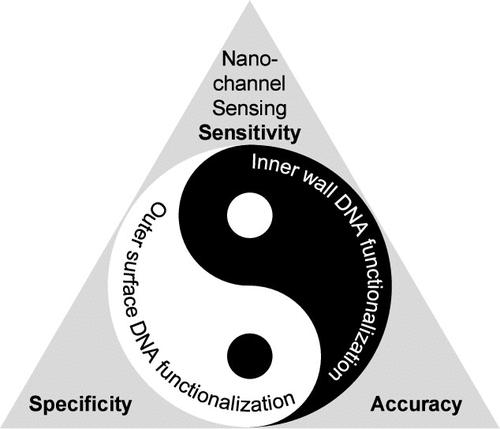DNA-Functionalized Solid-State Nanochannels with Enhanced Sensing
IF 14
Q1 CHEMISTRY, MULTIDISCIPLINARY
引用次数: 0
Abstract
After billions of years of evolution, organisms in nature have almost completed the intelligent manipulation of all life processes. Biological nanopores embedded in the cell membrane of organisms are representatives with intelligent manipulation capabilities. Biological nanopores can achieve controllable transmembrane transport of various ions and molecules, playing an important role in molecular biology processes such as substance exchange, signal transmission, energy conversion, and system function regulation in cells. Scientists have utilized biological nanopores for sensing analysis, such as gene sequencing and single-molecule detection. However, due to the characteristic that proteins (components of biological nanopores) cannot exist stably for a long time, scientists have developed solid-state nanopores/nanochannels with high mechanical strength, strong plasticity, and easy surface modification.

增强传感的dna功能化固态纳米通道
经过数十亿年的进化,自然界的生物几乎已经完成了对所有生命过程的智能操纵。嵌入生物细胞膜的生物纳米孔是具有智能操纵能力的代表。生物纳米孔可以实现各种离子和分子的可控跨膜转运,在细胞内物质交换、信号传递、能量转换、系统功能调节等分子生物学过程中发挥重要作用。科学家们利用生物纳米孔进行传感分析,如基因测序和单分子检测。然而,由于蛋白质(生物纳米孔的组成部分)不能长期稳定存在的特点,科学家们开发出了机械强度高、可塑性强、易于表面修饰的固态纳米孔/纳米通道。
本文章由计算机程序翻译,如有差异,请以英文原文为准。
求助全文
约1分钟内获得全文
求助全文

 求助内容:
求助内容: 应助结果提醒方式:
应助结果提醒方式:


